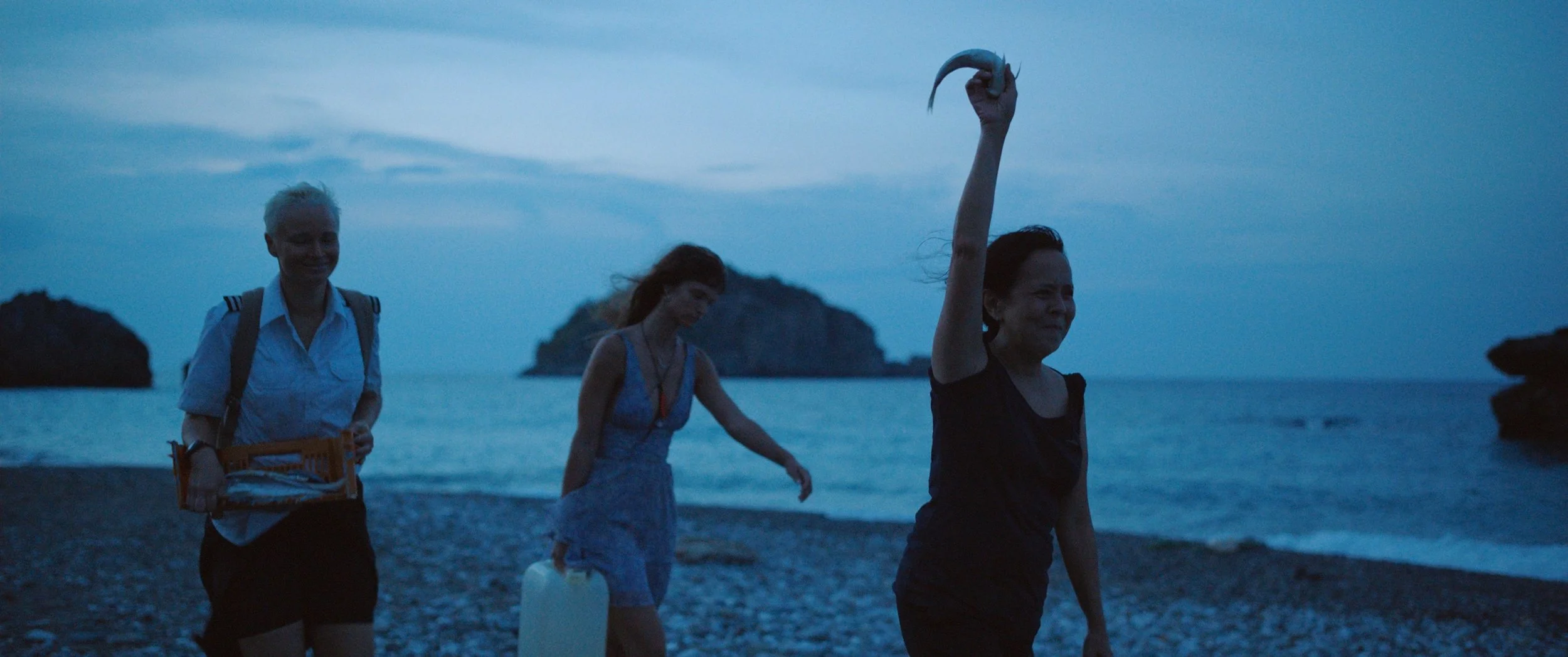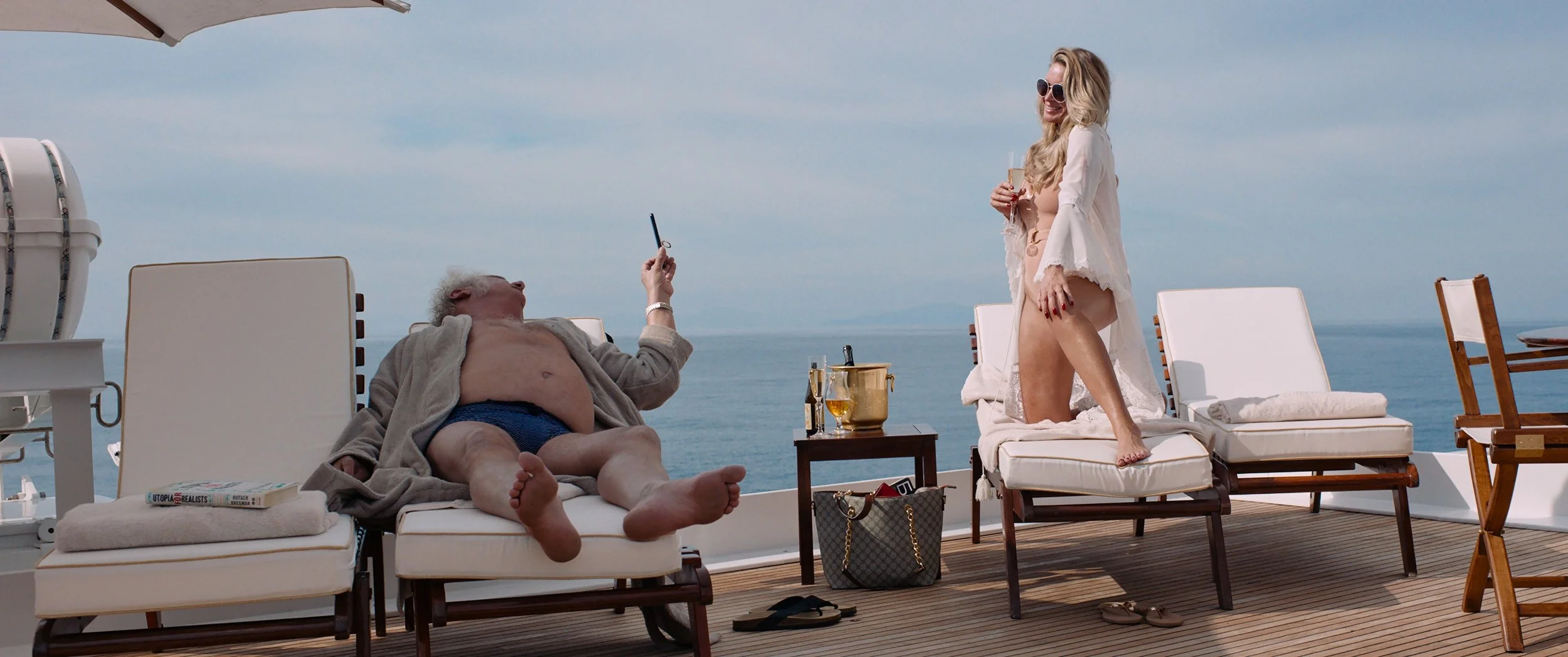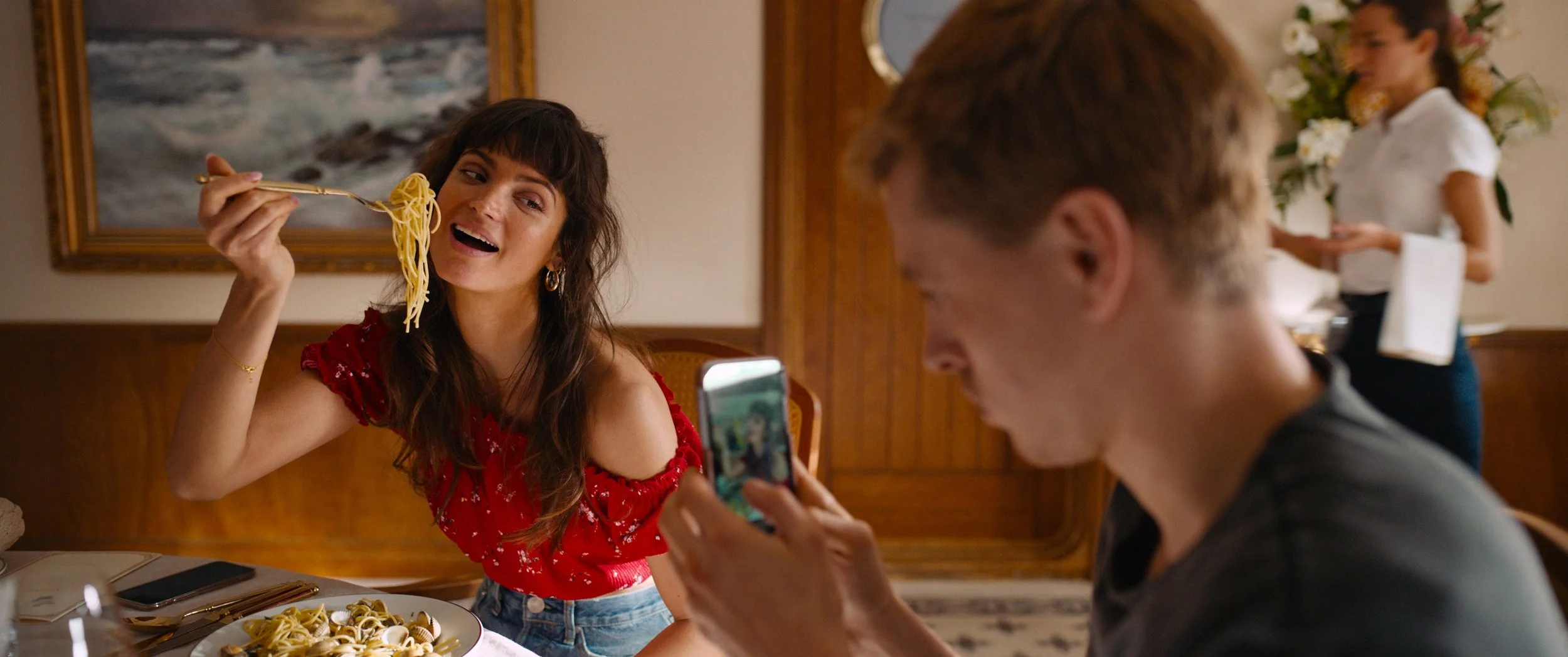Full of It
Swedish director Ruben Östlund takes more piss out of the elite in his Palme d’Or winning satire of privilege and bodily fluids.
Triangle of SAdness
Director: Ruben Östlund • Writer: Ruben Östlund
Starring: Harris Dickinson, Charlbi Dean, Dolly de Leon, Zlatko Burić, Iris Berben, Vicki Berlin, Henrik Dorsin, Jean-Christophe Folly, Woody Harrelson
Sweden / Germany / France / UK • 2hrs 27mins
Opens Hong Kong December 29 • III
Grade: A
When Abigail (Dolly de Leon), an unassuming Filipino member of a luxury yacht’s cleaning staff, washes up on the shore of a remote island with other survivors from a shipwreck, the fancy folks she worked for treat her exactly like they did when they were at sea: like she wasn’t there. Or, at least they do at first. When it becomes clear that Abigail is totally badass and is also the only one among them who actually knows how to survive on the island the tables are turned. Abigail has the power now. It’s a bitter pill for the privileged types to swallow, especially for influencer Yaya (Charlbi Dean) when Abigail decides she wants model Carl (Harris Dickinson), Yaya’s boyfriend. Better (worse?) still, Carl’s down with this arrangement because of the perks it gets him.
Ruben Östlund’s Palme d’Or winner Triangle of Sadness is, like The Menu, shooting fish in a barrel. In taking aim at the one percent and the cluelessness of the billionaire set Östlund’s first English-language film (after the genius domestic drama Force Majeure and the art world piss-take The Square) has some of the easiest targets in the world in its sights, but you know what? That’s fun. Eating the rich has been trending in cinema for a while (Bong Joon-ho’s Parasite, Lorene Scafaria’s Hustlers, Rian Johnson’s Knives Out) and Östlund’s satire of a luxury cruise gone fluidly and catastrophically wrong slots in nicely, for the most part achieving its lofty ambitions.
Did you know the triangle of sadness is between your eyes? Well it is, and it’s what a casting director wants Carl to work during an audition when we meet him, flashing alternating H&M and Balenciaga faces. He and Yaya are working through some relationship issues – he resents her traditional “You pay” attitude even though she earns more – and decide a working holiday might help. Off they go on a superyacht cruise – free if she posts about it on the ’Gram – where they mix and mingle with other super-rich and/or minor celeb types. Among them: a philosophy-spouting Russian oligarch Dimitry (Zlatko Burić) and his trophy wife Vera (Sunnyi Melles), lonesome tech bro Jarmo (Henrik Dorsin), German socialite Therese (Iris Berben), who can only speak one sentence thanks to a stroke, and a sweet old British couple, Clementine and Winston (Amanda Walker and Oliver Ford Davies), who made their fortune selling weapons.
Triangle of Sadness starts as almost a picaresque comedy, with guests making absurd demands the staff are compelled to honour, almost all demonstrating how out of touch these people are. The high point of the trip (and the centrepiece of the film) is the seven-course Captain’s Dinner, which The Captain (a perfectly woozy Woody Harrelson) doesn’t really want to be at. He proves to be an entirely ineffective sailor when the perfect storm of bad weather and badder seafood ends in an eruption of humanity the likes of which have rarely been seen. The yacht goes down, there are pirates, and a few passengers make it to a desert island with the ship’s purser Paula (Vicki Berlin), mechanic Nelson (Jean-Christophe Folly), the only Black person, and the aforementioned Abigail for a modern, class-based spin on Lord of the Flies.
There’s a ton going on in Triangle of Sadness, and Östlund has essentially made three films in one. He starts with an examination of gender norms and youth and beauty as a form of currency, morphs the film into the expected deconstruction of privilege and how those who have it don’t even realise their power – Carl gets a guy fired because of petty jealousy and masculine insecurity – and finishes with a look at how power and privilege will rot the soul. When Abigail’s in charge is she upending the system or leveraging it for her own ends? None of this would work without the cast that is clearly revelling in every boneheaded suggestion and tone deaf comment their characters make. Dickinson has rarely displayed quite as much personality, and Burić and Harrelson going tete-a-tete about Reagan is a delight of contradictions. But it’s de Leon who runs away with the film as the bitter cleaner who smacks her lips at the thought of “getting hers”. As much as Östlund has packed into the film, it hangs together like a precision clockwork, even if there’s a little flab in the last act, and has us constantly shifting allegiances and sympathies. The thematic pieces snap together effortlessly, and cinematographer Fredrik Wenzel has made the jungle look gorgeously sinister. By now the disgusting frenzy of vomit and “poop cruise”-style toilet shenanigans have been thoroughly interrogated, and yes, that protracted sequence will put plenty of us off Triangle of Sadness. But that scene also encapsulates what’s so funny about it. It stinks and you just want it to stop. Kind of like the super-rich. — DEK



